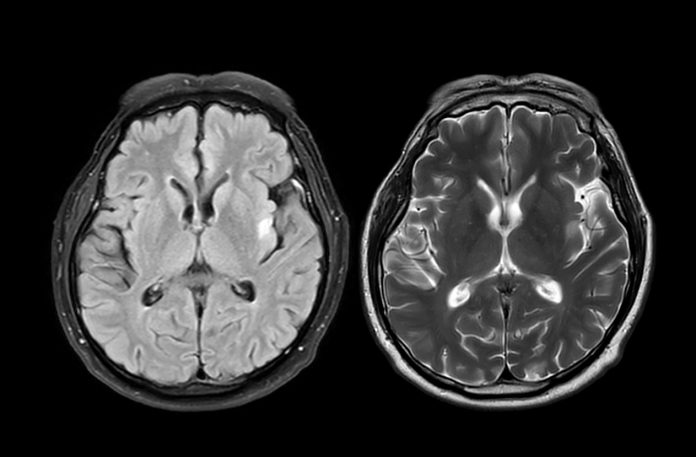Researchers at UCL have developed a method to reduce MRI scan times for dementia diagnosis by two-thirds, potentially doubling daily scan capacity and improving access to early care
A study by University College London (UCL) shows that diagnostic MRI scans for Dementia can now be completed in a third of the usual time. This breakthrough could make scans more comfortable for patients and allow more people to be assessed each day. With Dementia remaining one of the UK’s leading causes of death, faster scans could significantly improve early diagnosis and access to treatment.
The findings are available in Alzheimer’s & Dementia.
Ending the postcode lottery in dementia diagnosis
Described as a step towards ending the ‘postcode lottery’ in dementia diagnosis, shorter scans would be more comfortable for patients and allow more people to be assessed at a lower cost. The research team estimates this could double the number of dementia scans performed in a single day.
Senior author Professor Nick Fox, Director of the UCL Dementia Research Centre at the UCL Queen Square Institute of Neurology, said: “As more treatments that can slow or change the course of Dementia are being developed, it’s essential to make sure MRI scans are available to everyone. This is because people living with Dementia often need an MRI scan as part of their diagnosis before they can access these treatments.
“To help make this possible, our team carried out the first study looking at how new imaging techniques – called parallel imaging – could speed up MRI scans in clinics. Their goal is to move closer to a future where every person with Dementia can get a diagnosis through a scan.”
MRI scans play a key role in an accurate dementia diagnosis, and disease-modifying treatments such as lecanemab and donanemab require an MRI scan before starting treatment and for safety monitoring during the course of treatment. Reducing the cost of scanning would help contribute to lowering the total cost of delivering dementia treatments.
Comparing fast MRI scans to standard clinical scans
The ADMIRA study (Accelerated Magnetic Resonance Imaging for Alzheimer’s disease) aims to understand the reliability of fast MRI scans compared to standard-of-care clinical scans.
The researchers scanned 92 people in an outpatient setting where a brain MRI scan was planned as part of their routine clinical assessment. The accelerated scans were conducted and enhanced to increase the quality of the image using new scanning methods. Three neuroradiologists examined these scans, unaware whether they were looking at fast or standard-of-care scans.
Co-author Professor Geoff Parker (UCL Hawkes Institute and UCL Medical Physics and Biomedical Engineering) said: “Our research has taken advantage of recent breakthroughs in scanner technology. Our task was to work out just how fast we could scan while maintaining image quality good enough for diagnosis.”
The team found that the quicker scans reduced time in the scanner by 63% and they were as reliable as standard MRI scans.
First author Dr Miguel Rosa-Grilo (UCL Queen Square Institute of Neurology) said: “We were confident that the new scan would prove non-inferior to the standard scan, given the high image quality – but it was remarkable how well it performed.”
Richard Oakley, Associate Director of Research and Innovation at Alzheimer’s Society, said: “Dementia is the UK’s biggest killer, but one in three people living with the condition haven’t had a diagnosis. An early and accurate diagnosis isn’t just a label; it’s the first step to getting vital care, support and treatment.
“While MRIs aren’t the only way to diagnose dementia, very few people with concerns about their cognitive health are offered one as part of the diagnosis process, mainly because they are expensive and not widely available. These faster MRIs, which take less than half the time of standard scans, could help end this postcode lottery in dementia diagnosis, cut costs and potentially give more people access to them.
“MRI scans can be an uncomfortable and daunting experience for patients, so anything we can do to make it a more straightforward process is really positive.
“So far, this shortened MRI scan has been tested at one specialist centre with one type of MRI scanner, so more research is needed to make sure this works across different types of scanners and a diverse range of people. We’re hugely encouraged by this progress and eager to see how it continues.”








